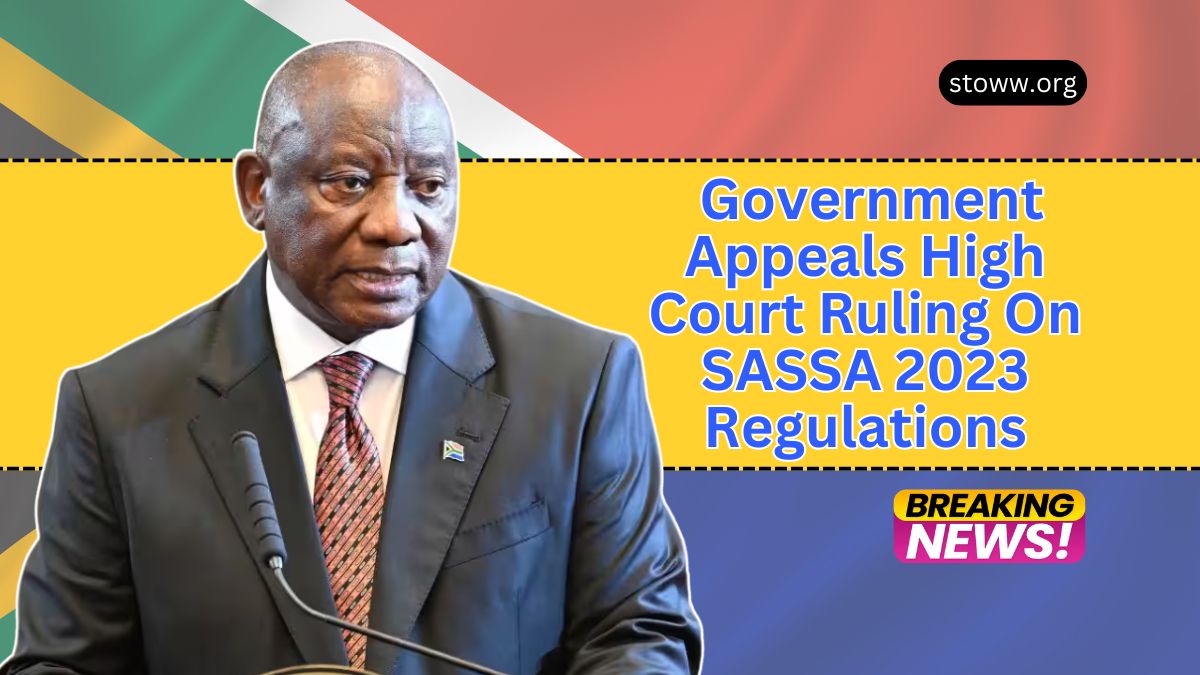In a significant legal development, the Gauteng High Court in Pretoria has granted Social Development Minister Sisisi Tolashe permission to appeal a judgment that declared the 2023 regulations of the South African Social Security Agency (SASSA) unconstitutional.
This decision has far-reaching implications for the administration of social grants in South Africa, particularly the Social Relief of Distress (SRD) grant.
Background of the High Court Judgment
Earlier in 2025, the Gauteng High Court found that certain SASSA regulations limited access to the R370 SRD grant. The court invalidated several provisions, including:
- Online-Only Applications: The requirement that grant recipients apply exclusively through electronic platforms was deemed unconstitutional, as it restricted access for individuals without internet access or digital literacy.
- Definitions of “Income” and “Financial Support”: The court found that the stringent definitions of these terms unfairly limited eligibility, excluding many who were in genuine need of assistance.
Advocacy Groups’ Challenge
The regulations were challenged by advocacy organizations #PayTheGrants and the Institute for Economic Justice (IEJ).
They argued that the 2023 regulations imposed unreasonable barriers to accessing essential financial aid, thereby infringing upon the constitutional right to social security.
Court’s Reasoning for Granting Leave To Appeal
Judge Mpostoli Twala granted the application for leave to appeal, citing the complexity and significance of the case, which impacts nearly 30% of South Africa’s population.
The judge acknowledged that while he had considered all issues and arguments, the matter warranted the attention of the Supreme Court of Appeal (SCA) due to its profound societal implications.
Implications of the Appeal
The appeal process will address several critical aspects of the SRD grant regulations:
- Application Procedures: Reevaluating the feasibility and fairness of mandating online-only applications, considering the digital divide in South Africa.
- Eligibility Criteria: Revisiting the definitions of “income” and “financial support” to ensure they do not unjustly exclude eligible individuals.
- Payment Delays: Addressing systemic issues leading to delayed or non-payment of approved grants, which the court previously deemed unconstitutional.
Key Aspects of the 2023 SASSA Regulations Under Scrutiny
| Regulation Aspect | Court’s Finding |
|---|---|
| Online-Only Applications | Deemed unconstitutional; limited access for those without digital means. |
| Definitions of “Income” and “Financial Support” | Found to be overly restrictive, excluding many in need. |
| Bank Verification Process | Criticized for inaccuracies leading to unjust exclusions. |
| Payment Subject to Available Funds | Ruled unconstitutional; cannot withhold payments due to fund depletion. |
| Appeals Process Restrictions | Limiting new evidence in appeals was deemed unfair. |
The Supreme Court of Appeal will now review the case, considering the arguments from both the government and advocacy groups.
The outcome will have significant implications for the administration of social grants and the accessibility of financial aid to South Africa’s vulnerable populations.
FAQs
What prompted the High Court to declare the 2023 SASSA regulations unconstitutional?
The court found that certain regulations, such as the online-only application requirement and restrictive definitions of “income,” limited access to the SRD grant, violating constitutional rights.
What does the appeal by the Minister of Social Development entail?
The appeal seeks to overturn the High Court’s judgment, aiming to reinstate the challenged regulations or modify them in a manner consistent with legal and constitutional standards.
How might this legal process affect current and future SRD grant applicants?
The appeal’s outcome could lead to changes in application procedures, eligibility criteria, and payment processes, potentially making it easier or more challenging for individuals to access the SRD grant.
